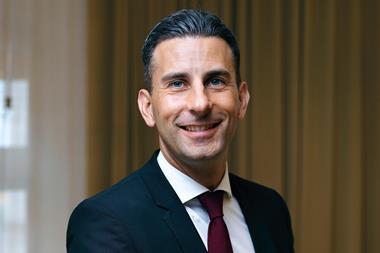There are many clichés associated with pension plans - maximising investment returns while minimising investment risks, diversifying risks, long-term investing, moderate turnover, no borrowings and regular reporting. Superficially hedge and trading funds fly in the face of every one of these clichés. In the same way that the individual ingredients of a haggis are not particularly appetising, the final cooked mixture is very pleasing to every Scot. So it is with most hedge and trading funds, the final products provide investment returns with known characteristics and low volatility. Examine for one moment the typical trustee attitude towards turnover and long-term investment. Hedge and trading funds are in a different league from traditional portfolios. In some hedge funds the securities are frequently bought and sold in totality within a single day, either making a small profit or, if the strategy has not worked, closing out the positions to limit the losses to a small amount. This is equivalent to more turnover in a day than a traditional pensionfund sees in a year and hardly constitutes long-term investing.
For trustees accustomed to being directly involved in reviewing their portfolios the arrival of a hedge fund brings a new experience. Not only can the fund's composition change with great rapidity but reviews at the traditional monthly or quarterly intervals become meaningless. The identity of the decision-maker for the hedge fund and regular reviews to ensure adherence to the stated investment style are more realistic factors to consider than the contents of the portfolio. When strategies are determined on a day-to-day basis the concept of giving a forecast for one year ahead is academic.
Neither a lender nor a borrower be" could be the motto for any body of trustees or investment committee.
However, to create significant results many hedge funds which operate on an arbitrage basis borrow heavily to magnify the small incremental return they seek to earn on each strategy they pursue. Without such leverage the decision might be impeccable but the end result would be an insignificant gain.
One final observation on attitude concerns the state of the market for investment services. Ever since the concept of third-party investment management arose it has been a buyer's market. When did you last hear of a traditional fund manager arranging a beauty parade of the pension funds it might consider taking on as a new client? In contrast to traditional fund management this is almost the case with certain types of hedge fund. There are strict limits to the money they can manage within their particular style and many are highly selective when deciding which clients they will accept. It also leads frequently to funds being closed to further new money. Are there economic circumstances where hedge funds might become major components of pension plans? Currently interest rates in many countries are at their lowest levels for a generation. The time will vary from region to region, but soon interest rates will begin a cyclical recovery. When that happens investing in medium and long duration bonds will become a negative sum game, with capital losses likely to outstrip the increasing levels of interest being offered. Such a scenario is ideal for investing in absolute return hedge funds where the aim is to achieve a steady stream of small incremental returns without suffering any significant capital losses. David Duncan is director, institutional, at Global Asset Management in London"












